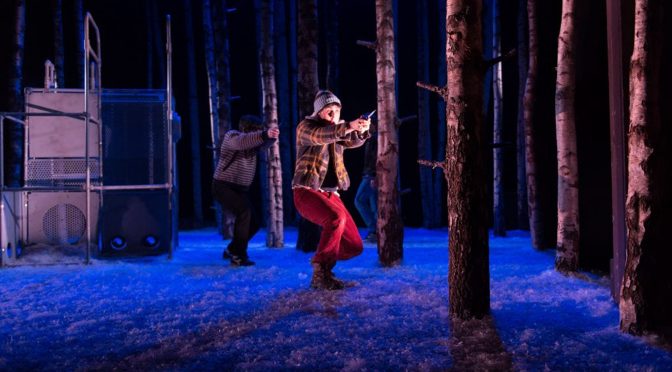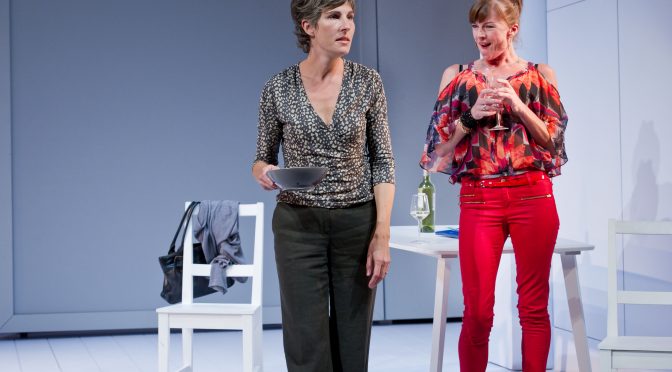The National Theatre of Scotland are paying a visit to London, to the Royal Court, with their warmly received production, Let the right one in. A superb adaptation by Jack Thorne, of the novel by John Ajvide Lindqvist, made famous by two successful film versions, it deserves unreserved praise for its eminent theatricality. It’s a vampire story with a brain, as well as the usual suspense, and the twist is that this is a story about children.
On stage, we have Martin Quinn as young Oscar, doing a marvellous job at convincing us he is on the brink of puberty. He’s horribly bullied at school, from a broken home and has issues that are only suggested to us (like Oscar, we can’t quite work them out). The supporting roles of school children, mum and dad, are confidently performed and Quinn captivates as the kid in the class we all recognise.
But Oscar’s issues are nothing compared to those of his new friend Eli. She only plays at night, sleeps in a box and lives off blood procured by a creepy father-figure who murders people in the nearby woods. Oscar and Eli’s innocent relationship is… complicated. Rebecca Benson, taking the lead role, gives a luminous performance. Just the right side of ethereal, she injects humour and tension with a physicality that stuns.
All the potent ingredients of vampire mythology that make the genre so popular (and commentators so profuse) are present. There’s no shortage of spine tingling and no skimping on blood capsules. But even better, each encounter between the youngsters increases in tension. The characters are complex, and even Eli’s butchering guardian, played so well by Ewan Stewart, is someone you want to learn more about.
Director John Tiffany’s work ensures the show is not only far more than your average teenage tale but also (and critics always love this one) more than a film on stage. Every aspect of the production emphasises the theatrical: its inventive, high-spec set by Christine Jones, and fantastic sound design, lighting and especially movement that adds immeasurably to the powerful emotions and gives the show an odd beauty.
The grace of the performances, often in scenes of violence, is accompanied by a rousing electronic soundtrack by Ólafur Arnalds – the best music I’ve heard for theatre in a long time. A gory vampire story might make an odd Christmas trip for the family, but this is one that teens might actually like – and that everyone should be impressed with.
Until 21 December 2013
Written 6 December 2013 for The London Magazine


